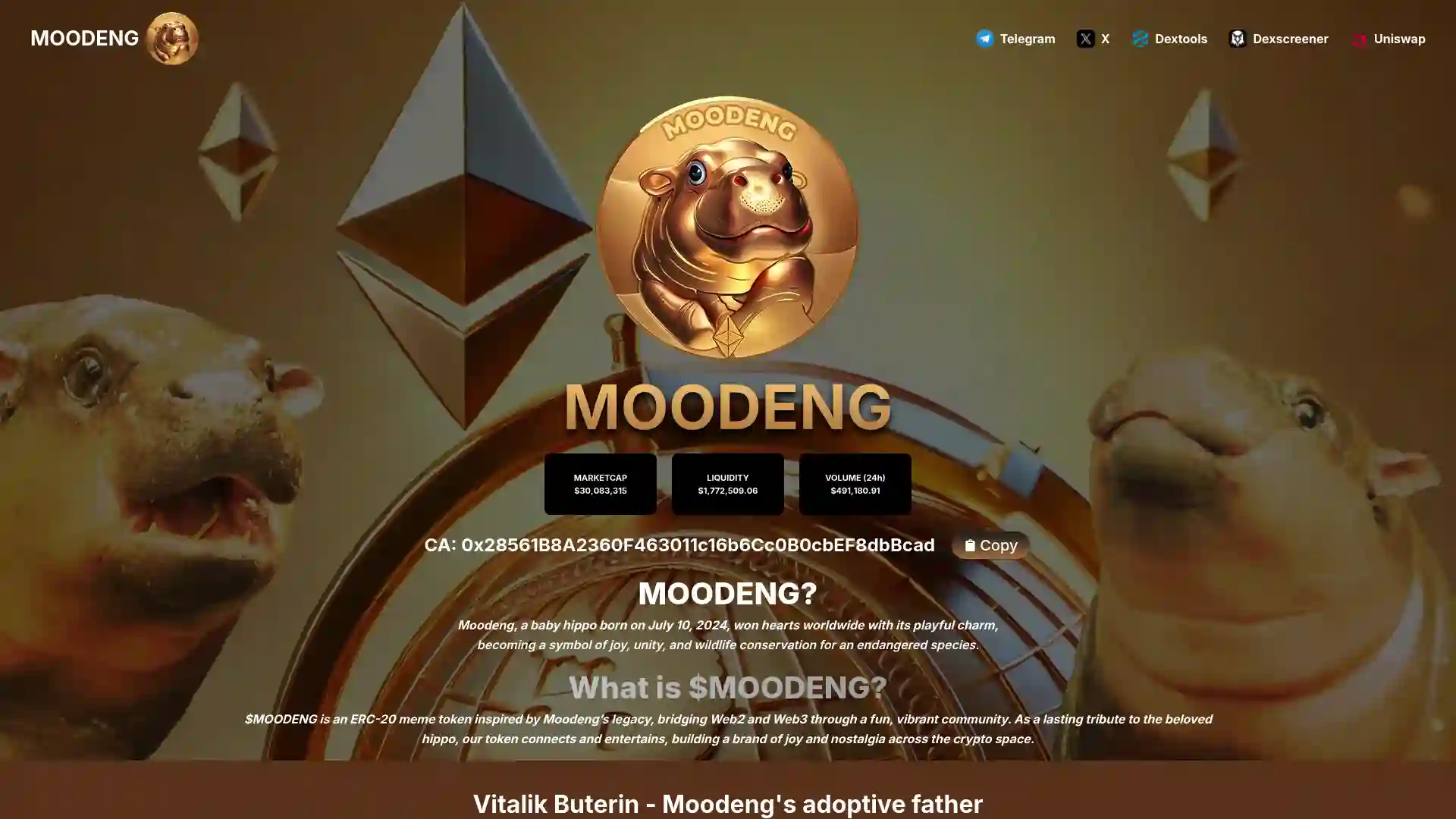MOO DENG (MOODENG)
MOODENG (ETH) is a unique meme coin that has captured the attention of the cryptocurrency community. It resides on the Ethereum blockchain and draws inspiration from a real-life pygmy hippopotamus named Moodeng. This endearing animal, hailing from Thailand, became an internet sensation, leading to the creation of the MOODENG cryptocurrency. The project is a complete community endeavor, emphasizing its decentralized and community-driven nature.
The story behind Moodeng
The story of MOODENG (ETH) begins with the real-life pygmy hippopotamus named Moodeng, whose charming presence and popularity online sparked the idea for this cryptocurrency. As an internet sensation, Moodeng inspired a community of developers and crypto-enthusiasts to create a token that not only celebrates the beloved animal but also seeks to make a mark in the digital currency space.

| Ticker | MOODENG |
| Category | Meme |
| Website | https://moodeng.vip/ |
| @ethmoodengfan | |
| Telegram | moodengethcto |
| Contract Addresses | |
|---|---|
| ethereum | 0x28...ad Copied! Copied! |
Vitalik's involvement with MOODENG
Vitalik Buterin, the co-founder of Ethereum, plays a significant role in the MOODENG (ETH) project. Known affectionately as the 'Father of MOODENG', Vitalik adopted the project, becoming a pivotal figure in its development and growth. He holds 7.13% of the tokens, a testament to his commitment and belief in the project's potential. Vitalik's involvement extends beyond mere token holding; he has interacted with and contributed to the development of MOODENG, further solidifying its foundation within the crypto community.
Community-driven approach
MOODENG (ETH) is a completely community-driven project, highlighting the power and potential of decentralized collaboration. The community's goal is to establish MOODENG as the new king of meme coins, bridging the gap between Web2 and Web3 environments. This ambitious vision seeks to leverage the collective efforts and creativity of its community members, driving innovation and growth within the meme coin sector.
Bridging Web2 and Web3
One of the core aspirations of the MOODENG (ETH) project is to create a seamless link between Web2 and Web3. By doing so, the project aims to enhance user experiences and provide new opportunities for engagement and interaction within the digital landscape. The integration of these two ecosystems is intended to foster a more connected and accessible platform for users, promoting broader adoption and utilization of blockchain technology.
